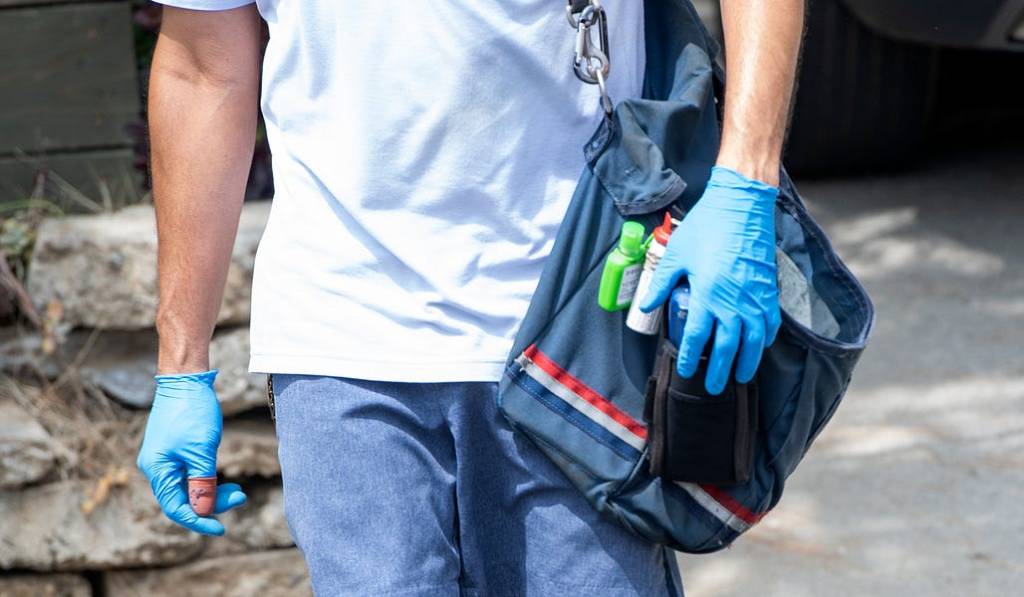A viral tweet claims that the United States Postal Service ordered mail carriers to “”SLOW THE MAIL DOWN.” Screenshots of the tweet have also gone viral on Facebook and Instagram.
Dave Partenheimer, the public relations manager for Postmaster General Louis DeJoy, denied that the mail was being intentionally slowed down in a statement to The Dispatch Fact Check.
“Despite any assertions to the contrary, we are not slowing down Election Mail or any other mail. Instead, we continue to employ a robust and proven process to ensure proper handling of all Election Mail consistent with our standards,” said Partenheimer.
Partenheimer’s statement acknowledged that a temporary slowdown was occurring as Postal Service employees work through the kinks of newly enacted policies, “but any such impacts will be monitored and temporary as the root causes of any issues will be addressed as necessary and corrected as appropriate.”
Partenheimer also disputed allegations that the Postal Service’s policy changes could be politically influenced, pointing out that “Postmaster [Louis] DeJoy was not nominated and appointed by the President. No president appoints the Postmaster General. The Postmaster General was appointed by the Postal Service Board of Governors.”
The Postal Service Board of Governors has nine presidentially appointed and Senate-confirmed members. By law, no more than five of these members may be of the same political party. The postmaster general and deputy postmaster general are both appointed by the Board of Governors and sit on the board as well, bringing the total number of seats to 11. However, the board has not been fully staffed since 2010, and currently has six presidentially appointed members, all of whom are Trump appointees. One of them, Ron Bloom, is a Democrat, while registration for two others was not available—one, Donald L. Moak has donated to a number of Democratic candidates and groups, while the other, William Zollars, has donated to a number of Republican candidates and groups. The current postmaster general is also a top Trump supporter and fundraiser, and brings the total number of current board members to seven.
DeJoy announced these new policies in a memo to USPS workers on July 10. The focus is on efficiency, with many of the new procedures dealing with transportation and working hours. One specific change, implemented to save costs, is that late delivery trips and extra delivery trips “are no longer authorized or accepted.” As such, the memo notes that “we may see mail left behind or mail on the workroom floor or docks (in P&DCs), which is not typical.”
Partenheimer said that these changes were deemed necessary to increase efficiency because “As the Postmaster General recently reiterated, the Postal Service is in a financially unsustainable position, stemming from substantial declines in mail volume, and a broken business model. We are currently unable to balance our costs with available funding sources to fulfill both our universal service mission and other legal obligations.” DeJoy’s predecessor, Megan Brennan, had warned that the Postal Service would “run out of cash” by September if it didn’t receive financial assistance from Congress.
The new procedures, however, have been unpopular with many workers. The American Postal Workers Union did not respond to a request for comment, but the APWU President Mark Dimondstein was interviewed by CNN in July, and said that postal workers and customers have been complaining of a “degraded” and slowed down mail service in the past two weeks. Dimondstein blamed this slowdown not on an order to postal workers but on the new policies, saying that “obviously if the postal management is putting in policies to slow down the mail, then that has an impact on everything.”
A slow down in the mail is occurring right now, and it’s currently unclear whether this will be resolved by the time the election occurs, meaning it is still important to ensure mail-in ballots are prepared and postmarked in advance of the election. Partenheimer encouraged election officials and voters “to be mindful of the time that it takes for us to transport, process, and deliver ballots from election officials to the voters, the time that it takes for voters to consider and prepare their ballots, and the time that it takes for a ballot to be transported, processed, and delivered back to election officials after it is placed by the voters back into the mail stream, based upon our usual delivery standards.” However, there is no evidence that this slowdown is occurring because the postmaster general told postal workers to slow down the mail.
If you have a claim you would like to see us fact check, please send us an email at factcheck@thedispatch.com. If you would like to suggest a correction to this piece or any other Dispatch article, please email corrections@thedispatch.com.
This fact check is available at IFCN’s 2020 U.S. Elections FactChat #Chatbot on WhatsApp. Click here, for more.
Photograph by Valerie Macon/AFP via Getty Images.







Please note that we at The Dispatch hold ourselves, our work, and our commenters to a higher standard than other places on the internet. We welcome comments that foster genuine debate or discussion—including comments critical of us or our work—but responses that include ad hominem attacks on fellow Dispatch members or are intended to stoke fear and anger may be moderated.
With your membership, you only have the ability to comment on The Morning Dispatch articles. Consider upgrading to join the conversation everywhere.